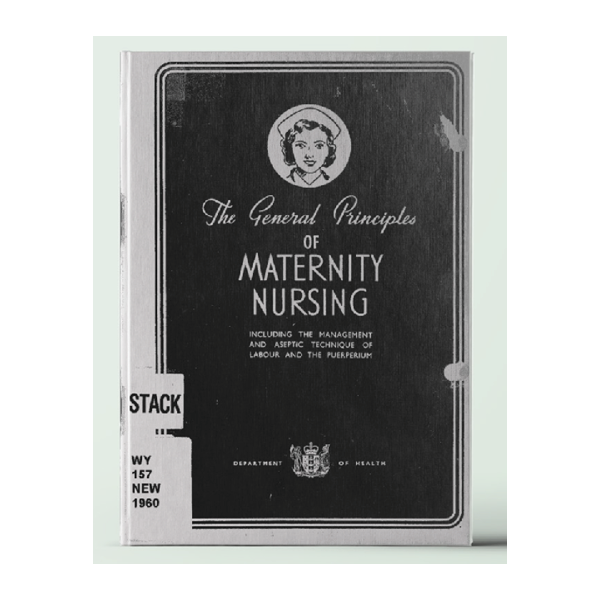Changing maternity practices – the foundation for Parents Centre

Parents Centre Aotearoa has a rich past – one which we like to look back and reflect on – as well as celebrate. This article on changing maternity practices in New Zealand first featured in issue 300 of KiwiParent magazine.
“Although [the Sister] said that rooming-in had been quite frequently tried at Palmerston North, many of the nurses had no experience of it and one or two first made it clear that they thought it entailed extra work for them all, and therefore was a bad thing and anyway why should I be so privileged?”
Rooming-in was high on the list of changes sought by mothers unhappy with the maternity services of the 1950s, especially those who experienced a natural, unsedated birth. For them, separation from their babies was a keenly felt deprivation. Mothers who had been attending Parents Centre classes wanted the baby right there beside the bed, where they could see them. They wanted to breastfeed as soon as possible, as the baby needed it and not be disciplined by the four-hourly hospital feeding routine.
Those who had been anaesthetised for the final stage of labour (very often against their will) might not get a chance to hold their baby for another 12 hours.
It was nursing routine, in accordance with the handbook of the time, H-Mt 20*, to wash and whisk away the baby to the nursery, encouraging the mother to “have a good sleep now, dear”. They were lucky if they were able to touch their baby.
* The General Principles of Maternity Nursing, and so-called ‘bible of New Zealand maternity nursing’, first introduced in 1926.
Rooming-in and demand feeding were considered an outrageous request at the time by nurses trained according to the H-Mt 20 manual and they were supported by the four-hourly rule of the Plunket Society. They regarded such mothers as foolish or hysterical and discouraged them for their own good.
Parents Centres emerged across New Zealand in the 1950s as more and more parents wanted to have a say in their experience of childbirth. At that time, mothers regularly stayed in the hospital or birthing unit for 14 days, under the management of the matron and nursing staff, who were not sympathetic to their desire for a different approach.
In 1952, after a lot of hard work, an emerging group of parents agreed on a name (Parents Centre), a constitution and its aims. These would read: “To promote … those practices which have beneficial effects upon early parent-child relationships such as education for childbirth, rooming-in, breastfeeding, home confinement and permissive methods of childcare”. Parents Centre was the first organisation in the world to combine preparation for childbirth with education for the larger role of parenthood.
But change was not easy. When one of the founders of Parents Centre, Christine Cole, led a small delegation of mothers to ask the senior obstetrician at Wellington Hospital for changes, he made no secret of his views. He did not approve of a lay organisation meddling in professional matters and he had no time for natural childbirth ideas. Christine Cole recalled he was so outraged he stammered, “You are nothing but a bunch of c-c-communists!”
Over the years, Parents Centres across New Zealand campaigned for more permissive practices in hospitals, and slowly gains were made. Some of these were helped by international changes such as those promoted by Dr John Bowlby in his book Maternal Care and Mental Health, and some by New Zealand specialists such as Professor Harvey Carey of the National Women’s Hospital.
By 1957, it was time for the separate Parents Centres to come together in a federation, to strengthen their advocacy. Professor Carey was emphatic that “we must federate at once and form an advisory board so that we can take part in top level conferences etc on maternal welfare and be a strong united body which will influence public opinion”, wrote Helen Brew, the founder of Parents Centre and the Wellington President. “He feels his work at the top level is hampered continually because to date there is no strong body backing his progressive ideas from below.”
Professor Carey was impatient for change, irked by a system that refused to allow any straying from the regulations enshrined in the handbook. He told the Parents Centre conference in 1957 that “the country needs a progressive, active body to lead public opinion. Parents Centres should publicise rooming-in and demand-feeding, and the minimising of anaesthetics as far as advisable. The ideal arrangement would be to integrate the antenatal preparation and hospital care so that mothers get continuity of care and support right through”.
Years of work and advocacy were paying off for the fledgling organisation. Now, with leading members of the medical establishment supporting its work, Parents Centre went on to establish itself as the leading community organisation providing antenatal education and advocacy. Rooming-in and demand feeding were just some of the first of their remarkable achievements that began nearly 70 years ago.
Material derived from letters of new mothers to the Palmerston North Parents Centre 1955–1956, and The Trouble with Women: The story of Parents Centre New Zealand by Mary Dobbie.
